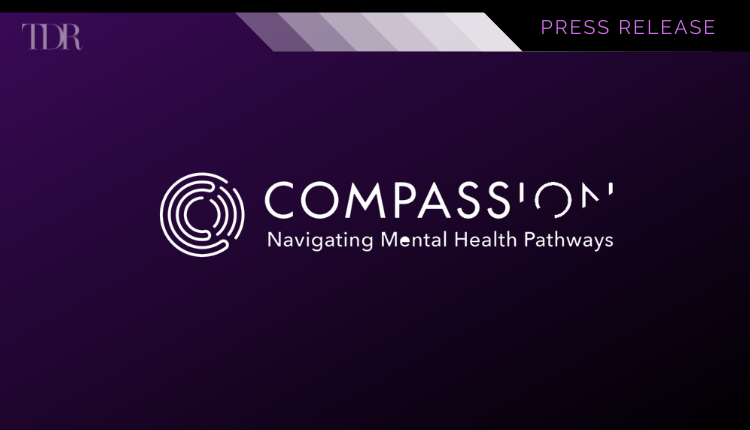
Two Thirds Of Physicians Surveyed Believe Psilocybin Therapy Has Potential Benefit For Patients With Treatment-Resistant Depression
COMPASS Pathways plc (NASDAQ: CMPS), a mental health care company dedicated to accelerating patient access to evidence-based innovation in mental health, and Sermo, a global leader in physician insights, today announced findings from a survey of Sermo physician members that showed two thirds (66%) of doctors surveyed believe psilocybin therapy has potential therapeutic benefit for patients with treatment-resistant depression (TRD).
More than 320 million people globally suffer with major depressive disorder (MDD)i, the leading cause of disability worldwide and one of the fastest growing mental health illnessesii. About a third of these patients – 100 million people – aren’t helped by existing therapies and suffer with TRDiii.
Psilocybin therapy is an approach being investigated for the treatment of mental health challenges, including TRD. It combines the pharmacological effects of a synthesised version of psilocybin, a psychoactive substance that is an active ingredient in some species of mushrooms, with psychological supportiv.
The survey of 259 Sermo member physicians, sponsored by COMPASS, was conducted in November 2021 and completed by participants from the US, the UK, France, Italy, Denmark, Spain and the Netherlands. Doctors were asked their views on the future of psychiatric therapy and the potential role of psilocybin therapy.
Key survey findings:
- 66% of doctors surveyed believe psilocybin therapy has potential benefit for patients with TRD
- 50% would prescribe psilocybin therapy, if it was approved; 32% are undecided
- The greatest potential advantages to psilocybin treatment are believed to be: improved efficacy in treatment-resistant conditions (30%), rapid onset of action (26%), and different mechanism of action from existing therapies (19%)
- The greatest potential barriers to treatment were cited as: needing a dedicated space for six to eight hours (28%), lack of trained therapists in a new model of psychological support (21%), and office infrastructure (15%)
- Opinions on the optimal setting for psilocybin administration varied by region: 50% of European respondents said hospital; 42% of US respondents said specialised network of centres
- Physicians also noted the need to educate healthcare professionals on the potential benefits of psilocybin therapy and on how to incorporate the therapy into their practice, if approved
“Severe mental illnesses, such as treatment-resistant depression, have affected too many people in society for too long. Physicians are looking for new approaches to accelerate the healing process, particularly for patients for whom current therapies have failed,” said Murali Doraiswamy MBBS, FRCP, Professor of Psychiatry and Behavioural Sciences at Duke University School of Medicine, and an advisor to Sermo.
These findings underline the fact that physicians need more options in helping patients suffering with treatment-resistant depression. COMPASS is developing COMP360 psilocybin therapy through a rigorous programme of research in the hope that we can offer just such an option. It’s very encouraging to see that so many doctors see the potential that psilocybin could have and these insights will help us to understand how to introduce COMP360 psilocybin, with psychological support, into medical systems, if approved.
Dr Guy Goodwin, Chief Medical Officer, COMPASS Pathways
-Ends-
Survey methodology
The survey was designed to assess attitudes towards the use of psilocybin therapy in general, in psychiatry. The survey was conducted online via Sermo’s RealTime platform and the random sample of physicians received compensation for their time and expertise. Survey limitations include sampling bias, inability to deduce causality from opinion polls, confounding variables not measured, and other factors.
To view the original press release in its entirety click here



